- Главная
- Разное
- Бизнес и предпринимательство
- Образование
- Развлечения
- Государство
- Спорт
- Графика
- Культурология
- Еда и кулинария
- Лингвистика
- Религиоведение
- Черчение
- Физкультура
- ИЗО
- Психология
- Социология
- Английский язык
- Астрономия
- Алгебра
- Биология
- География
- Геометрия
- Детские презентации
- Информатика
- История
- Литература
- Маркетинг
- Математика
- Медицина
- Менеджмент
- Музыка
- МХК
- Немецкий язык
- ОБЖ
- Обществознание
- Окружающий мир
- Педагогика
- Русский язык
- Технология
- Физика
- Философия
- Химия
- Шаблоны, картинки для презентаций
- Экология
- Экономика
- Юриспруденция
Что такое findslide.org?
FindSlide.org - это сайт презентаций, докладов, шаблонов в формате PowerPoint.
Обратная связь
Email: Нажмите что бы посмотреть
Презентация на тему Humanistic psychology
Содержание
- 2. Why humanistic? Humanistic psychology - this is
- 3. Main features In 1963, the first president
- 4. RepresentativesA .Maslow K. RogersV. FranklS. BuhlerF. BarronR. MayS. Dzhurard
- 5. Humanistic psychology, MASLOW AND IMAGE OF MODERN
- 6. The pyramid of MaslowMaslow is known as
- 7. Carl RogersOne of the leaders of the
- 8. The theory of personality traits G. AllportIn
- 9. Personality in terms of humanistic psychologyHumanistic psychology
- 10. Скачать презентацию
- 11. Похожие презентации
Why humanistic? Humanistic psychology - this is a direction in modern Western, American psychology, the study of which is the subject of the whole human in his highest, specific for human manifestations:development and self-actualization, its highest
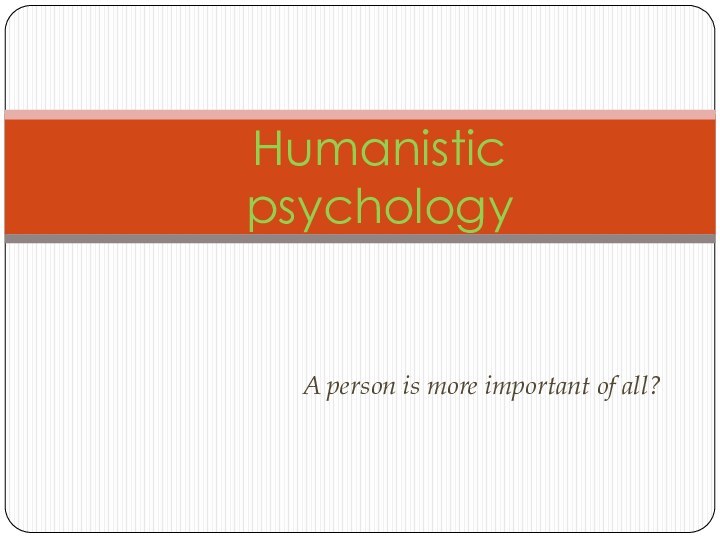
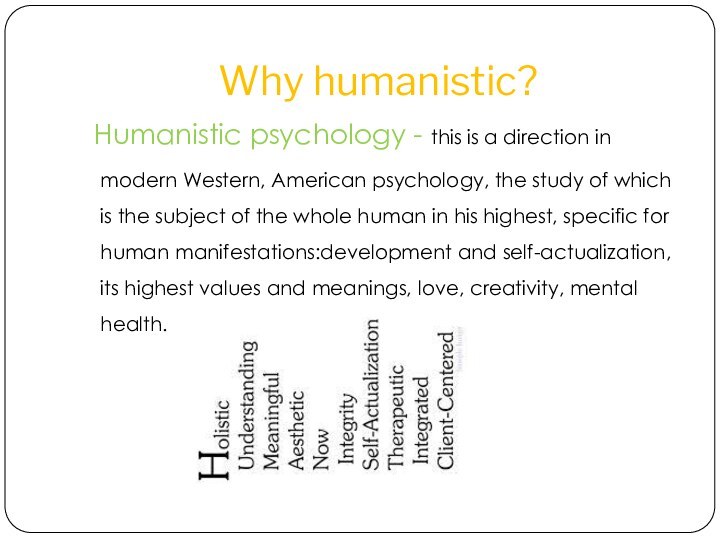
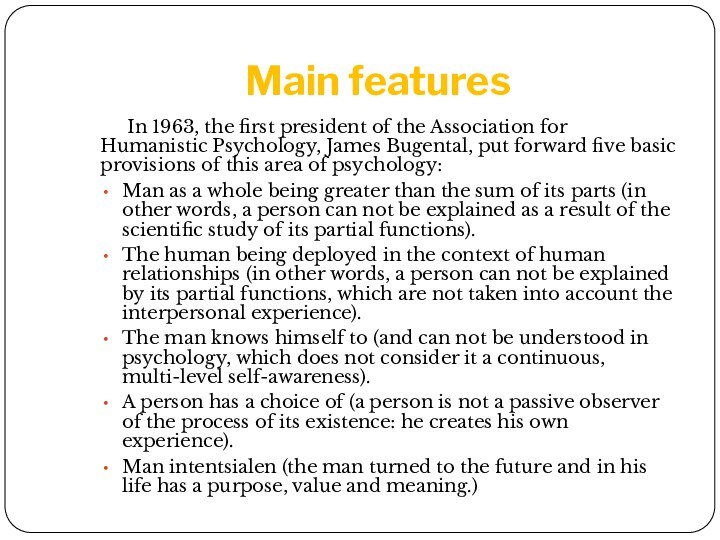
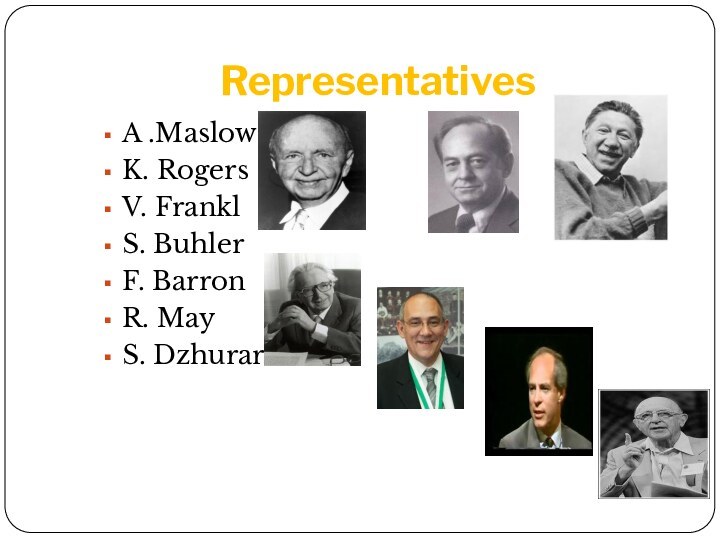
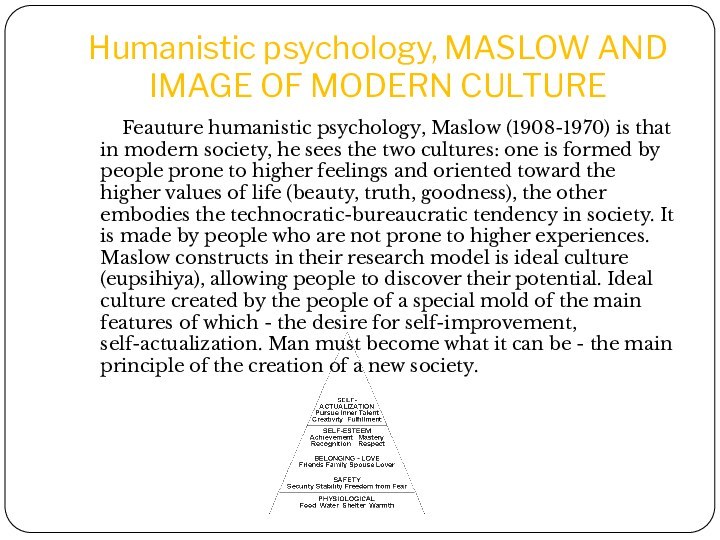
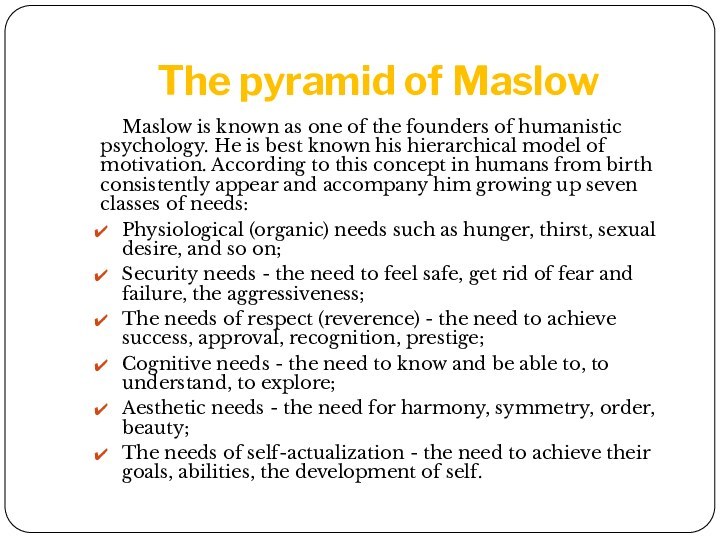
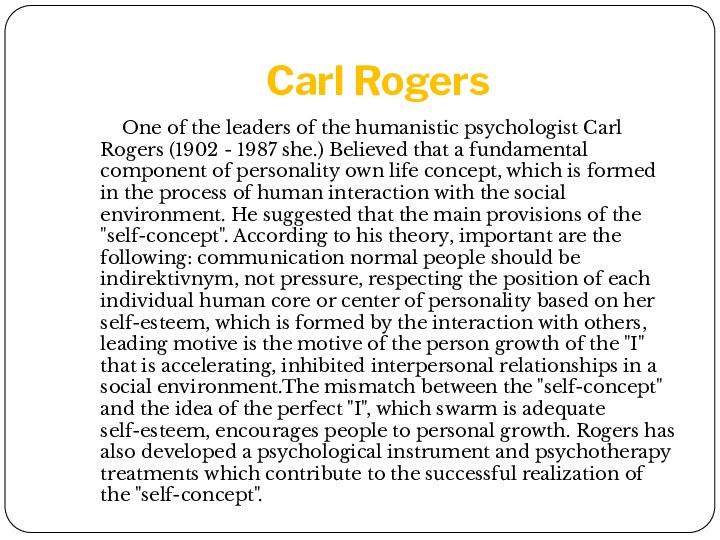
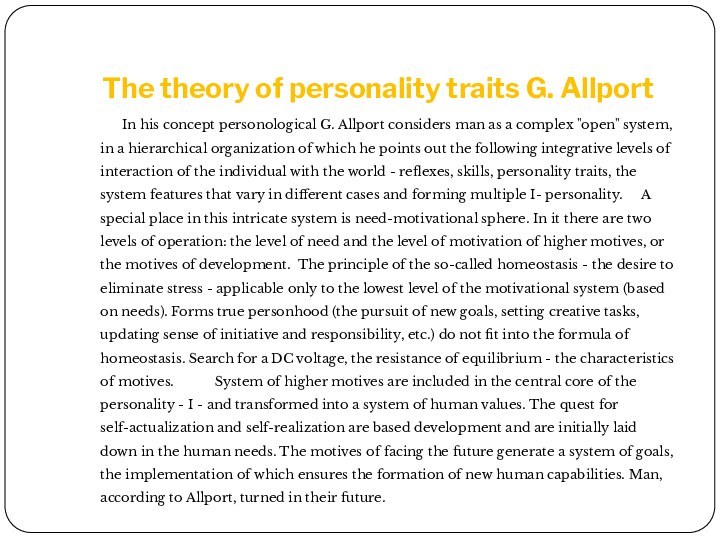
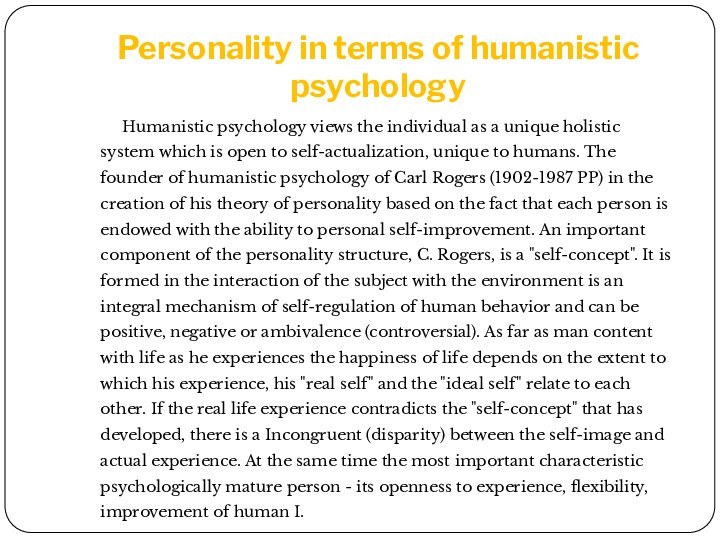
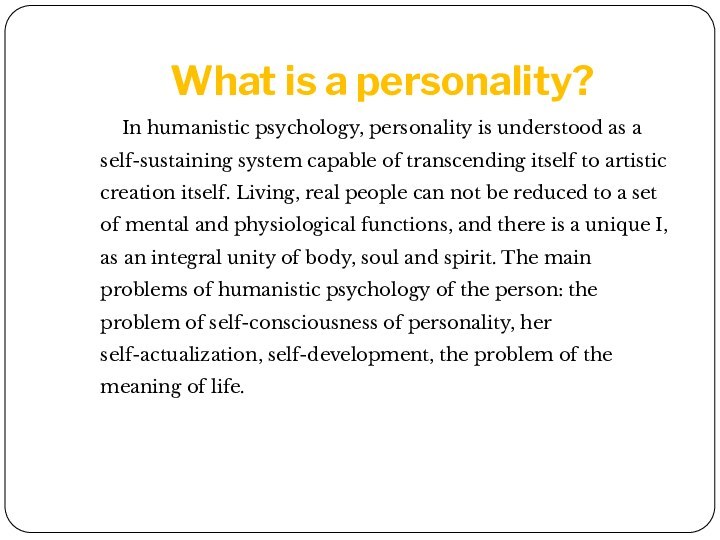
Слайд 3
Main features
In 1963, the first president of
the Association for Humanistic Psychology, James Bugental, put forward
five basic provisions of this area of psychology:Man as a whole being greater than the sum of its parts (in other words, a person can not be explained as a result of the scientific study of its partial functions).
The human being deployed in the context of human relationships (in other words, a person can not be explained by its partial functions, which are not taken into account the interpersonal experience).
The man knows himself to (and can not be understood in psychology, which does not consider it a continuous, multi-level self-awareness).
A person has a choice of (a person is not a passive observer of the process of its existence: he creates his own experience).
Man intentsialen (the man turned to the future and in his life has a purpose, value and meaning.)
Слайд 5
Humanistic psychology, MASLOW AND IMAGE OF MODERN CULTURE
Feauture
humanistic psychology, Maslow (1908-1970) is that in modern society,
he sees the two cultures: one is formed by people prone to higher feelings and oriented toward the higher values of life (beauty, truth, goodness), the other embodies the technocratic-bureaucratic tendency in society. It is made by people who are not prone to higher experiences. Maslow constructs in their research model is ideal culture (eupsihiya), allowing people to discover their potential. Ideal culture created by the people of a special mold of the main features of which - the desire for self-improvement, self-actualization. Man must become what it can be - the main principle of the creation of a new society.
Слайд 6
The pyramid of Maslow
Maslow is known as one
of the founders of humanistic psychology. He is best
known his hierarchical model of motivation. According to this concept in humans from birth consistently appear and accompany him growing up seven classes of needs:Physiological (organic) needs such as hunger, thirst, sexual desire, and so on;
Security needs - the need to feel safe, get rid of fear and failure, the aggressiveness;
The needs of respect (reverence) - the need to achieve success, approval, recognition, prestige;
Cognitive needs - the need to know and be able to, to understand, to explore;
Aesthetic needs - the need for harmony, symmetry, order, beauty;
The needs of self-actualization - the need to achieve their goals, abilities, the development of self.





























